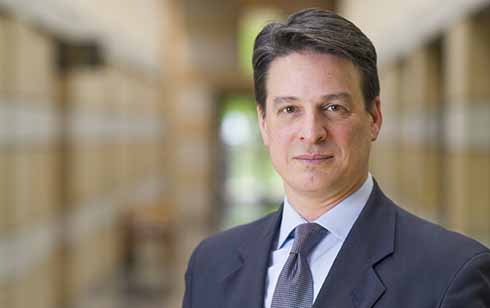 Free – yet accountable – Catholic education remains a powerful catalyst for social harmony according to a visiting expert in international and human rights law.
Free – yet accountable – Catholic education remains a powerful catalyst for social harmony according to a visiting expert in international and human rights law.
Faith-based institutions, including Catholic organisations, are under siege in many countries as leaders address the delicate balance between religion, law and the state in increasingly secular societies.
SOCIAL CAPITAL
While acknowledging some of the sticking points, which include funding and curriculum, Notre Dame Law School (USA) Professor Paolo Carozza argued for the role of Catholic education in developing social capital.
“There’s a lot of reason to believe that Catholic schools in many parts of the world are capable of contributing a great deal to social capital and social harmony and development very broadly,” the director of Notre Dame’s Kellogg Institute for International Studies said.
“These institutions are providing a formation that has huge implications for the development and stability and public wellbeing of communities. Values-laden education is a way to encourage and foster civic engagement, democratic values, community growth and development, higher degrees of toleration and understanding in a fraught era.”
CONFERENCE
Professor Carozza is among a coterie of law and education experts who will speak at the Freedom, autonomy and responsibility conference from 22-24 May at Australian Catholic University’s North Sydney Campus.
The conference will be hosted by ACU in collaboration with The Kellogg Institute for International Studies and the Institute for Educational Initiatives, University of Notre Dame (USA); the Holy See’s Congregation for Catholic Education; and the European Association for Education Law and Policy.
Guests will hear from speakers including Professor Carozza, ACU Vice-Chancellor Professor Greg Craven, Congregation for Catholic Education Undersecretary Fr Friedrich Bechina FSO and Global Education Law Forum President Professor Jan De Groof on finding the balance in Catholic education and the law in a global context.
FUNDING PROBLEM
Professor Carozza said the funding of faith-based institutions was a shared problem which could be tackled with the assistance of fruitful and sustainable international relationshipss.
“The hope is that we will catalyse a new global network of scholars and practitioners in this area who can help one another and share information with one another in establishing new relationships,” he said.
“Seeing each other country that we’re dealing with has its own set of problems and challenges, but contextualising them, hopefully will also allow us to see where there is reason for hope and optimism and not see everything as being a manifestation of crisis and siege.”
For more information, or to register, visit the conference website.
Image: Notre Dame Law School (USA) Professor Paolo Carozza